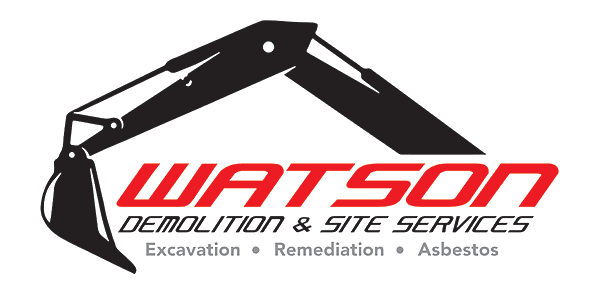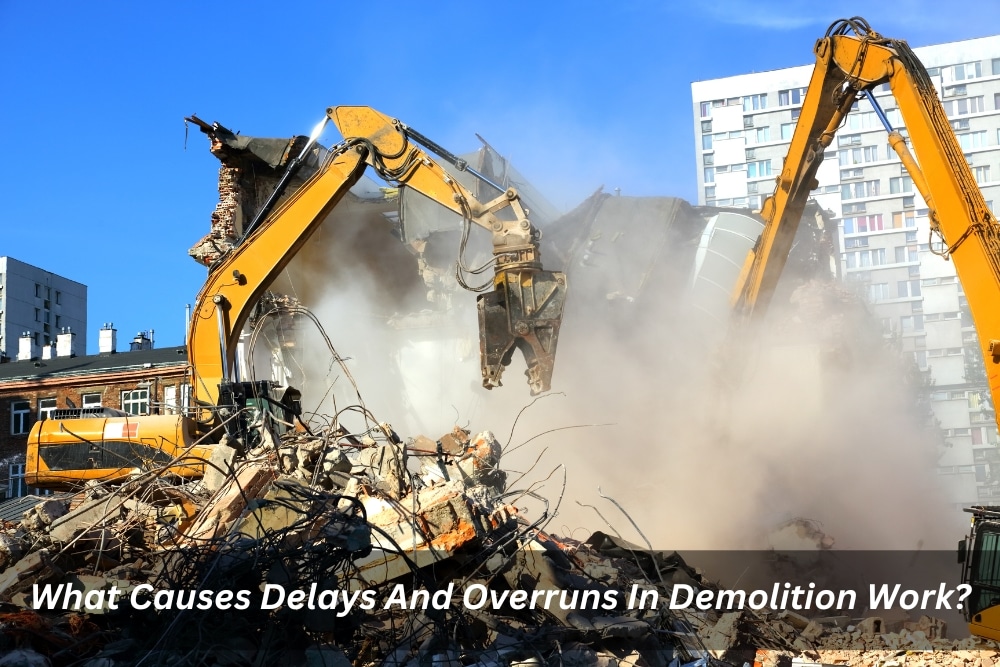Demolition work is a complex and intricate process involving removing structures, buildings, or any man-made edifices. Whether you’re embarking on a residential renovation project or managing a large-scale commercial demolition, one thing is certain: you want the project to run smoothly, on time, and within budget. However, demolition projects often encounter delays and overruns, leading to increased costs and frustration. In this article, we’ll explore the most common causes of these setbacks and provide insights on how to mitigate them.
What are the primary reasons behind delays and exceeding timeframes in the field of demolition work?
- Unforeseen site conditions: Demolition projects often start with a detailed assessment of the site. However, unforeseen conditions can lurk beneath the surface, such as buried utilities, unstable soil, or hidden structural elements. Discovering these issues during the demolition process can significantly delay the project as it requires adapting the original plan to address these newfound challenges.
- Poor planning and scheduling: Inadequate planning and scheduling can lead to inefficiencies and delays. It’s essential to have a well-thought-out demolition plan that outlines every step of the process, from securing permits to disposal of debris. In addition, a realistic schedule should be established, accounting for potential setbacks, before work begins.
- Unqualified personnel: The success of a demolition project largely depends on the skills and expertise of the personnel involved. Hiring unqualified or inexperienced workers can lead to mistakes, accidents, and delays. Furthermore, it’s crucial to ensure that everyone on the team is trained and competent in their roles.
- Equipment failures: Demolition work relies heavily on specialised equipment, such as excavators, wrecking balls, and hydraulic shears. Equipment breakdowns can grind the project to a halt, leading to costly delays. Regular maintenance and having backup equipment on standby can help mitigate this risk.
- Permitting issues: Obtaining the necessary permits and approvals is a critical aspect of any demolition project. Delays can happen when difficulties arise in securing these permits or when acquiring them within a timely manner becomes necessary. Thoroughly understanding the permitting process and addressing potential hurdles early on can prevent such setbacks.
- Bad weather: Weather conditions can play a significant role in the progress of a demolition project. Rain, snow, or extreme temperatures can hinder work, especially when working with heavy machinery or handling hazardous materials. Planning for seasonal weather patterns and having contingency plans in place is essential.
- Budget constraints: One of the most challenging aspects of any project is adhering to the budget. Unexpected costs can arise due to unforeseen circumstances, changes in scope, or underestimated expenses. Keeping a close eye on the budget and having contingency funds available can help prevent financial overruns.
What are the specific challenges of commercial demolition projects?
- Larger and more complex projects: Commercial demolition projects are often more extensive and intricate than residential ones. These projects may involve multi-story buildings, intricate structural elements, and larger teams. Managing such complexity can lead to delays if not adequately planned and executed.
- Tight timelines: Commercial demolition projects frequently operate under strict timelines, as businesses may need to resume operations promptly. Meeting these tight deadlines can be challenging and lead to delays if not managed effectively.
- Working in close proximity to other businesses and residents: Commercial demolitions often take place in urban or densely populated areas. Working near other businesses and residential buildings requires careful coordination to minimise disruptions and safety risks. If you don’t adequately consider neighbouring properties, it can lead to delays.
- Dealing with hazardous materials: Commercial buildings may contain hazardous materials such as asbestos, lead paint, or chemicals. Safely removing and disposing of these materials can be time-consuming and costly. Compliance with environmental regulations is crucial, and any deviation from these rules can lead to delays and fines.
- Minimising disruption to business operations: Commercial demolitions must be carried out in a way that minimises disruptions to neighbouring businesses. This often means working during off-peak hours or weekends, which can extend project timelines.
How can you mitigate the risk of delays and overruns in your demolition work?
- Hire a qualified demolition contractor: One of the most effective ways to reduce the risk of delays and overruns is to work with a reputable and qualified demolition contractor. Experienced contractors have the knowledge, skills, and resources to manage complex projects efficiently. They understand the nuances of permitting, safety, and environmental regulations, ensuring that your project remains on track.
- Thoroughly plan and schedule your project: Invest time and effort in creating a detailed demolition plan and schedule. Consider potential challenges and setbacks, and build in buffers to accommodate them. A well-structured plan can serve as a roadmap for the entire project, helping you avoid costly surprises.
- Identify and address potential risks early on: Proactively identifying and addressing things that affect the building demolition process can prevent them from becoming major issues. Conduct thorough site assessments, engage in regular safety inspections, and have contingency plans ready for unforeseen circumstances.
- Communicate regularly with all stakeholders: Effective communication is crucial in demolition projects, especially in commercial settings where multiple parties are involved. Keep all stakeholders informed about project progress, potential delays, and changes in scope. Open lines of communication can help resolve issues promptly.
- Have a contingency plan in place: No matter how well you plan, there will always be unforeseen challenges in demolition work. Having a contingency plan that outlines how to respond to various scenarios can minimise the impact of unexpected setbacks and keep the project on track.
What are the benefits of working with a qualified demolition contractor?
- Experience and expertise: Experienced demolition contractors bring a wealth of knowledge and expertise to the table. They understand the intricacies of demolition work and can navigate potential pitfalls with ease. Their experience can translate into a smoother, more efficient project.
- Proper equipment and resources: Qualified contractors have access to the right equipment and resources for the job. This ensures that the work is completed efficiently and safely, reducing the risk of delays due to equipment failures or shortages.
- Knowledge of safety and environmental regulations: Compliance with safety and environmental regulations is essential in demolition work. An esteemed contractor is thoroughly familiar with the code of practice for demolition work and can guarantee that all tasks are executed in strict accordance with these regulations, preventing expensive penalties and project delays.
- Ability to complete the project on time and within budget: Perhaps the most significant benefit of hiring a qualified contractor is the ability to complete the project on time and within budget. Their experience, planning, and resources allow for efficient execution, reducing the likelihood of delays and cost overruns.
Conclusion
Delays and overruns in demolition work are not uncommon, but they can be mitigated through careful planning, experienced personnel, and proactive risk management. Whether you’re overseeing a residential or commercial demolition project, it’s essential to address potential challenges early, communicate effectively, and consider hiring a qualified demolition contractor. By taking these steps, you can increase the likelihood of a successful and on-budget demolition project, bringing your vision to reality while minimising setbacks. Remember that while challenges may arise, with the right approach, you can overcome them and ensure a successful demolition project.
Ready to tackle your demolition project with confidence? At Watson Demolition & Site Services, we understand the complexities of demolition work and are here to offer our expertise and services. Whether it’s residential renovation or large-scale commercial demolition, we’re here to ensure your project runs smoothly, on time, and within budget. Say goodbye to delays and overruns by partnering with our experienced team. We’re well-versed in the code of practice for demolition work, guaranteeing compliance with regulations, preventing costly fines, and delivering on-time, on-budget results. Contact us today to get started on your demolition project and experience the benefits of working with qualified professionals.



